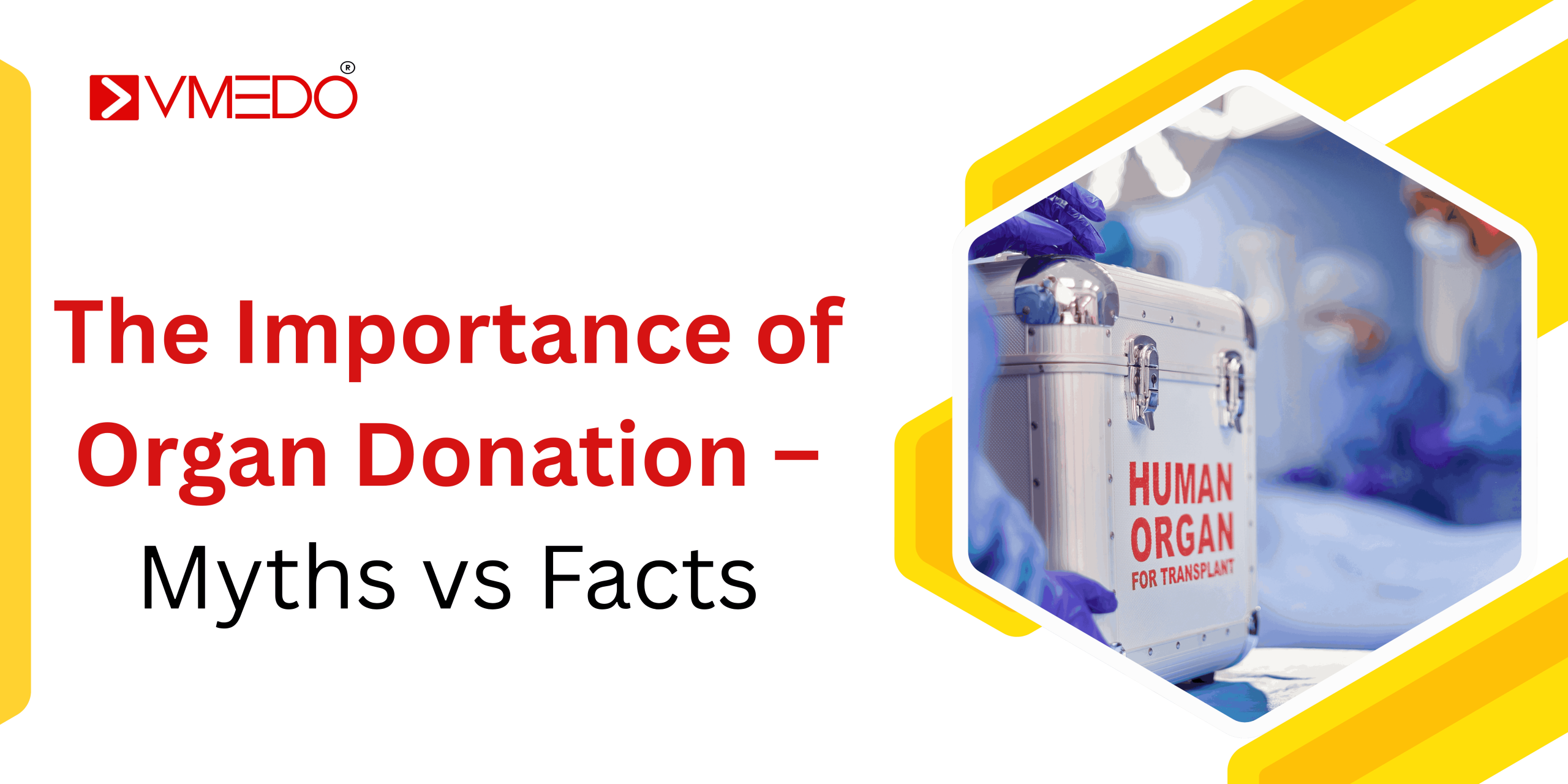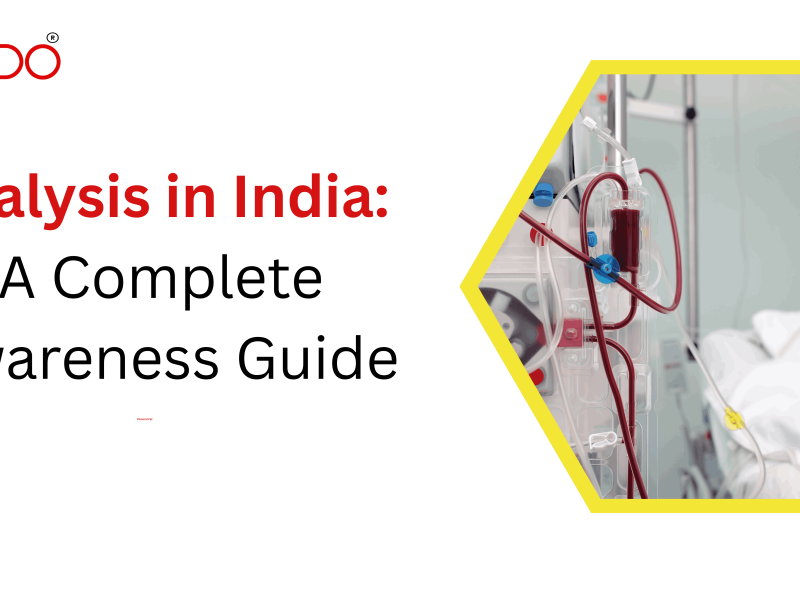Organ donation is one of the greatest gifts one human being can give to another—the gift of life. Despite the advancements in medical science, the demand for organ transplants continues to far exceed supply. Thousands of patients in India and across the world wait each year for a life-saving organ, but only a fraction receive the transplant they desperately need. Unfortunately, myths, misconceptions, and lack of awareness often discourage people from pledging their organs, further widening the gap between demand and supply. Understanding the Myths vs Facts about organ donation, and separating them from common myths, is critical to increasing participation and saving lives. This article explores the importance of organ donation, addresses myths versus facts, and highlights why awareness is the first step toward change.
Why Organ Donation Matters
Organ donation involves giving an organ or tissue to another person who needs a transplant to survive or improve their quality of life. Organs such as the heart, liver, kidneys, lungs, and pancreas can save lives, while tissues such as corneas, skin, and bones can restore health and function.
The importance of organ donation lies in:
-
Saving lives: A single donor can save up to eight lives through organ donation and improve the lives of many more through tissue donation.
-
Reducing waiting lists: Organ shortages lead to thousands of deaths every year, especially in India, where awareness and pledges remain low.
-
Improving quality of life: Transplants restore health and allow recipients to lead normal, productive lives.
-
Promoting social responsibility: Organ donation represents compassion, humanity, and a legacy that lives on even after death.
The Current Scenario of Organ Donation in India
India faces a significant gap between the need for organs and availability. While millions require transplants, organ donation rates remain low compared to global standards. Contributing factors include cultural beliefs, lack of awareness, inadequate healthcare infrastructure in some regions, and myths that prevent families from consenting to donation.
Promoting awareness, creating transparent systems, and dispelling myths are essential to improving organ donation rates and saving lives.
Common Myths vs Facts About Organ Donation
Myth 1: Doctors won’t try to save my life if I am an organ donor.
Fact: This is one of the most common fears. In reality, medical professionals are bound by their duty to save your life first. Organ donation is only considered after brain death is declared by an independent team of doctors who are not involved in the transplant process.
Myth 2: Organ donation disfigures the body.
Fact: Organ donation is carried out with utmost respect and dignity. The surgical procedure is performed carefully, and the donor’s body is not disfigured. Families can still have open-casket funerals if they wish.
Myth 3: Only young and healthy people can donate organs.
Fact: Age is not a strict barrier. Even elderly individuals or those with certain health conditions can donate some organs or tissues. Each potential donor is evaluated medically before donation.
Myth 4: My religion does not allow organ donation.
Fact: Most major religions, including Hinduism, Christianity, Islam, Sikhism, and Buddhism, support organ donation as an act of charity and compassion. It is seen as a noble way of giving back to society.
Myth 5: Organ donation means giving away my entire body.
Fact: Donors can choose which organs and tissues to donate. It is not necessary to donate the entire body; the decision lies with the donor or their family.
Myth 6: If I have a medical condition, I can’t donate.
Fact: Many people with common health issues can still be organ or tissue donors. The final decision is made by medical professionals based on the condition of the organs at the time of donation.
Myth 7: Organ donation is only possible after death.
Fact: Living organ donation is possible in some cases. For example, a person can donate one kidney or a portion of their liver while still alive, provided they are medically fit.
Myth 8: Registering as a donor guarantees my organs will be used.
Fact: Registration is a pledge of intent, but the decision depends on medical suitability at the time of donation. Not every pledged donor can necessarily donate.
Myth 9: Organ donation is a costly process for the donor’s family.
Fact: There is no cost to the donor or their family for organ donation. All expenses related to the process are handled by the recipient or healthcare system.
Myth 10: Organ donation leads to organ trafficking.
Fact: Legal organ donation and transplantation are strictly regulated in India under the Transplantation of Human Organs Act. Trafficking is illegal, and ethical systems are in place to ensure donations are voluntary and transparent.
Emotional and Social Impact of Organ Donation
Beyond medical benefits, organ donation carries profound emotional and social value.
-
For families of donors: Knowing that their loved one saved or improved many lives often brings comfort and pride during grief.
-
For recipients: Receiving an organ is a second chance at life, allowing them to return to their families, careers, and dreams.
-
For society: Organ donation builds a culture of empathy and collective responsibility. It demonstrates how one individual’s decision can make a monumental difference.
Living vs Deceased Donation
Organ donation can occur in two ways:
-
Living Donation: A healthy person donates an organ (like a kidney) or part of an organ (such as the liver) to someone in need.
-
Deceased Donation: Organs are donated after brain death, with family consent. This is the most common way multiple organs can be donated.
Both forms of donation are crucial to bridging the gap between demand and availability.
Why Awareness Matters
Despite the lifesaving potential of organ donation, India’s donation rates remain among the lowest globally. Myths, stigma, and lack of information discourage people from registering as donors or families from giving consent. Raising awareness and educating people about the truth is the most effective way to increase organ donation.
Awareness campaigns in schools, workplaces, and communities can break cultural barriers and normalize the concept of organ donation.
Steps to Pledge as an Organ Donor
Becoming an organ donor is a simple but life-changing decision. Here’s how you can pledge:
-
Register Online: Many government and NGO websites allow individuals to pledge their organs.
-
Carry a Donor Card: After registration, carry a donor card that indicates your wish.
-
Inform Family: The family plays a vital role in final consent, so informing them ensures your wishes are respected.
-
Spread Awareness: Encourage friends and loved ones to pledge and be part of the movement.
Conclusion
Organ donation is not just a medical act—it is an act of humanity. By debunking myths and spreading accurate information, we can encourage more people to pledge and bridge the gap between demand and supply. Every organ donor has the potential to save multiple lives, giving hope to patients and families who are waiting for a miracle.
The decision to donate is deeply personal, but its impact is universal. By choosing to become an organ donor, you leave behind a legacy of compassion, empathy, and life itself. Together, by breaking myths and embracing facts, we can transform organ donation from a rare act into a societal norm.



